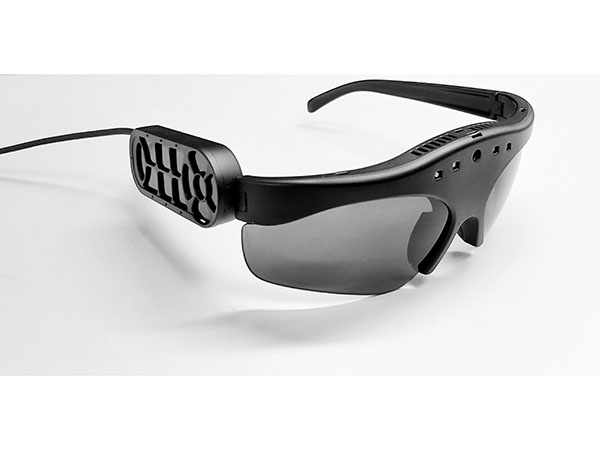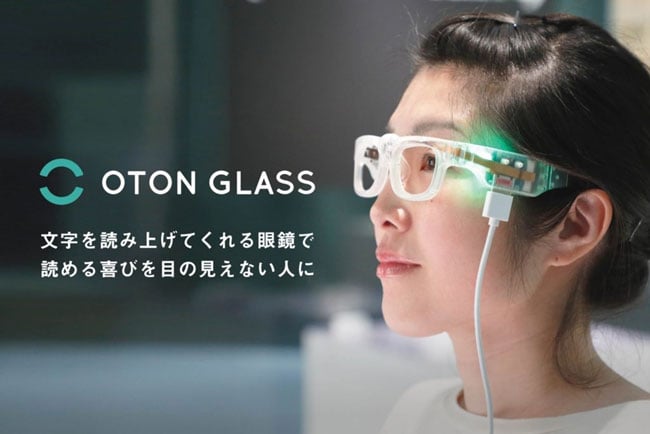The Future of Assistive Technology for the Blind: Empowering Independence
The Future of Assistive Technology for the Blind: Empowering Independence
Blog Article
Discover Advanced Assistive Devices for Individuals With Visual Impairments
The landscape of assistive technology for individuals with aesthetic disabilities is progressing swiftly, providing a series of ingenious gadgets that boost autonomy and interaction (Braille displays and notetakers). From smart glasses that flawlessly merge aesthetic input with auditory guidance to advanced navigating applications that redefine spatial awareness, these tools are reshaping possibilities. Moreover, the most recent improvements in Braille technology and voice-activated systems considerably add to accessibility. However, the implications of these advancements expand much past mere functionality; they challenge conventional understandings of handicap and independence. What might this imply for the future of addition and support?
Smart Glasses Innovations
Smart glasses stand for a considerable improvement in assistive modern technology for individuals with aesthetic impairments. These cutting-edge devices integrate numerous features designed to enhance the individual's communication with their atmosphere. Furnished with sensing units and electronic cameras, wise glasses can capture real-time aesthetic info, which is then processed and communicated to the user via sound feedback or haptic feelings. This capability enables people to obtain instant descriptions of their surroundings, enhancing their capacity to browse and engage with the world.
In addition, advancements in artificial knowledge have actually further improved the capabilities of smart glasses. Artificial intelligence algorithms can acknowledge faces, checked out text, and recognize things, making them vital tools for everyday jobs. Individuals can receive acoustic signs that offer context concerning their atmosphere, promoting freedom and self-confidence.
In addition, the ergonomic design and light-weight nature of lots of wise glasses make them appropriate for extended use, making certain convenience while improving functionality. As these tools proceed to advance, they hold the potential to revolutionize the means people with aesthetic impairments experience their every day lives, bridging the space in between ease of access and modern technology. The recurring study and advancement in this field assurance to broaden the possibilities for smart glasses, making them a crucial element of contemporary assistive gadgets.
Navigating Apps and Devices
Various navigating applications and tools have actually emerged as crucial sources for people with visual impairments, significantly boosting their capability to go across strange atmospheres. These technologies utilize GPS performance, audio cues, and real-time information to supply individuals with specific navigating help.
One noticeable example is the Aira application, which attaches users to trained representatives who can give visual summaries of environments and navigation guidance through an online video clip feed. This service boosts the individual's spatial recognition and confidence while browsing. Another noteworthy tool is Seeing Eye GPS, which provides voice-guided navigating and sights, enabling individuals to accessibility essential information about their surroundings.

As modern technology proceeds to development, the growth of much more advanced navigation devices guarantees to additional empower individuals with aesthetic problems, promoting seamless wheelchair and assimilation into varied settings. Such innovations are critical in promoting a more comprehensive society.
Braille Innovation Advancements
Over the last few years, advancements in Braille innovation have considerably changed how people with visual problems gain access to info and involve with the globe around them. The development of portable Braille display screens has revolutionized analysis by enabling users to attach wirelessly to smart devices, computer systems, and tablet computers. These devices transform message right into Braille in real-time, making it possible for smooth communication with electronic web content.
Additionally, cutting-edge Braille printers have actually arised, improving the manufacturing of responsive materials. Modern embossers are quicker and more reliable, enabling the rapid creation of Braille files and academic materials. This efficiency reduces the time and cost connected with generating Braille sources, making them much more available to schools and organizations.
Furthermore, the assimilation of Braille with other technologies, such as synthetic intelligence and artificial intelligence, has actually opened up brand-new methods for customized understanding experiences. Voice acknowledgment and synthesis modern technologies can enhance Braille, supplying an inclusive technique to info circulation.
As the demand for comprehensive education and workplace environments grows, these technological advancements play a vital duty in empowering individuals with visual disabilities, ensuring they have equivalent access to info and possibilities in different facets of life.
Wearable Tools for Self-reliance
An expanding variety of wearable tools is improving self-reliance for people with visual impairments, supplying innovative options that boost navigation and everyday living. Braille displays and notetakers. These gadgets use innovative technologies to offer real-time feedback and support, advertising autonomy in various Resources settings

Wearable innovation also includes smartwatches that can be programmed with access functions, allowing individuals to obtain notices, track their areas, or also require assistance with the touch of a switch. Some tools include synthetic knowledge to examine the environment, offering audio summaries of neighboring items helpful resources or people.
Voice-Activated Assistive Solutions
Leveraging voice-activated assistive options has transformed the landscape of assistance for individuals with visual impairments, supplying hands-free interaction and access to a variety of tasks. These modern technologies use all-natural language processing and fabricated knowledge to allow users to perform day-to-day activities via straightforward voice commands.

Moreover, current advancements in voice acknowledgment precision have actually enhanced the individual experience significantly, fitting varied accents and speech patterns. This inclusivity ensures that more people can gain from these modern technologies, fostering a higher sense of autonomy.
Final Thought
To conclude, the development of innovative assistive gadgets substantially improves the self-reliance and lifestyle for individuals with visual problems. Innovations such as clever glasses, navigation applications, Braille innovation, wearable devices, and voice-activated services collectively cultivate an even more inclusive environment. These technologies encourage customers to browse their surroundings with self-confidence and involve even more totally with the globe, inevitably advertising greater access and level playing fields for people dealing with aesthetic obstacles.
The landscape eye care stores of assistive technology for individuals with visual impairments is advancing rapidly, offering a range of cutting-edge gadgets that improve autonomy and engagement.Smart glasses represent a substantial innovation in assistive modern technology for individuals with aesthetic disabilities. As these gadgets continue to evolve, they hold the potential to transform the way individuals with visual impairments experience their day-to-day lives, connecting the void between availability and modern technology.In current years, improvements in Braille innovation have substantially changed exactly how people with visual disabilities gain access to details and involve with the globe around them. These innovations encourage customers to navigate their environments with self-confidence and involve even more completely with the world, inevitably promoting greater availability and equal chances for people dealing with visual obstacles.
Report this page